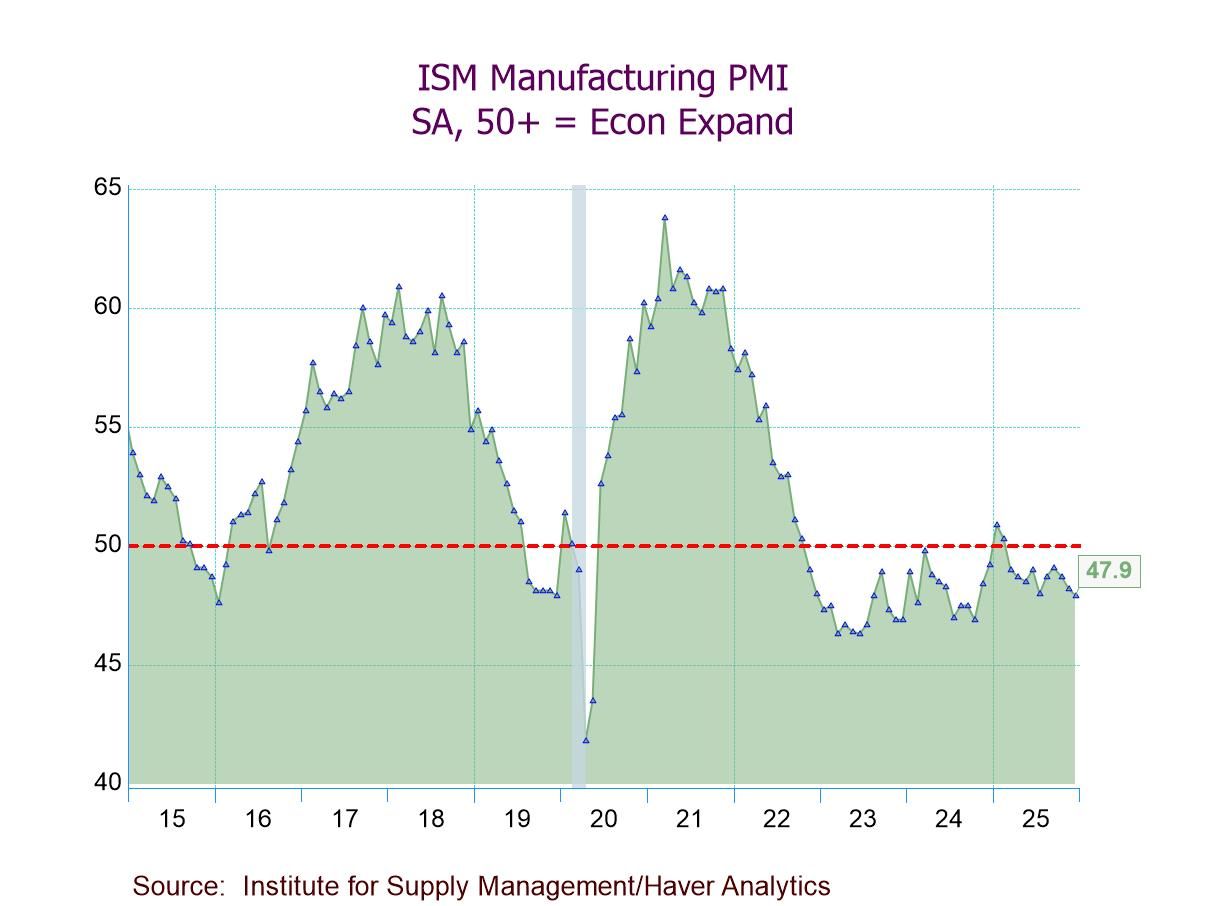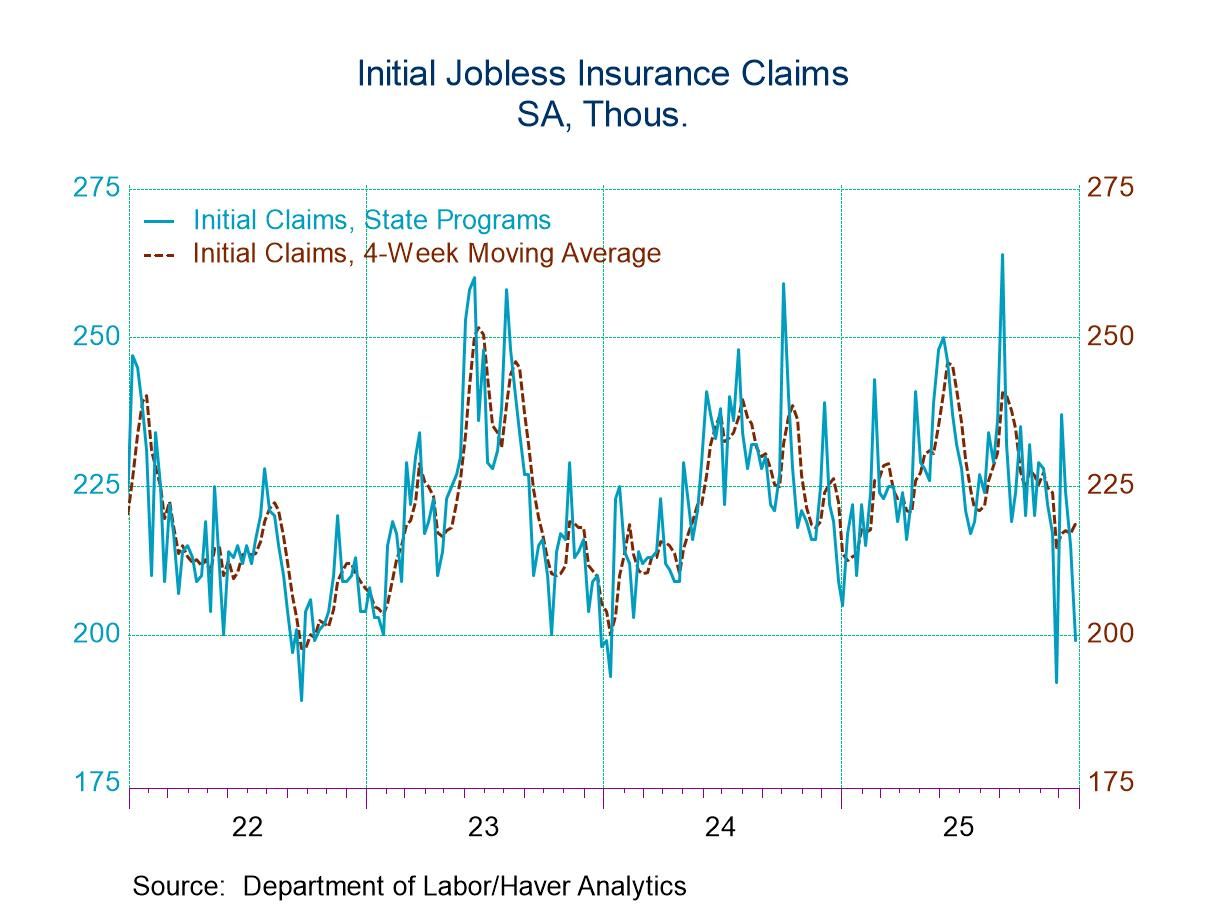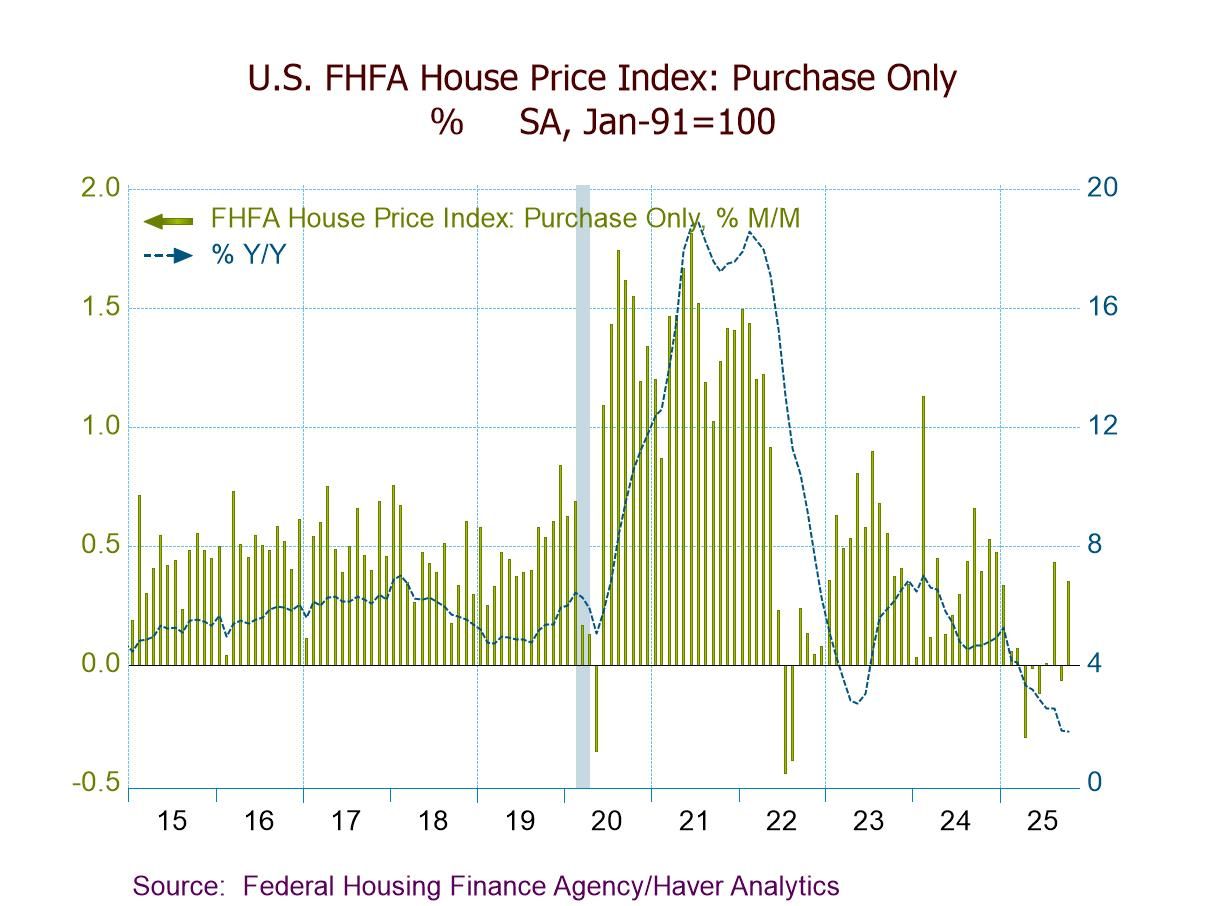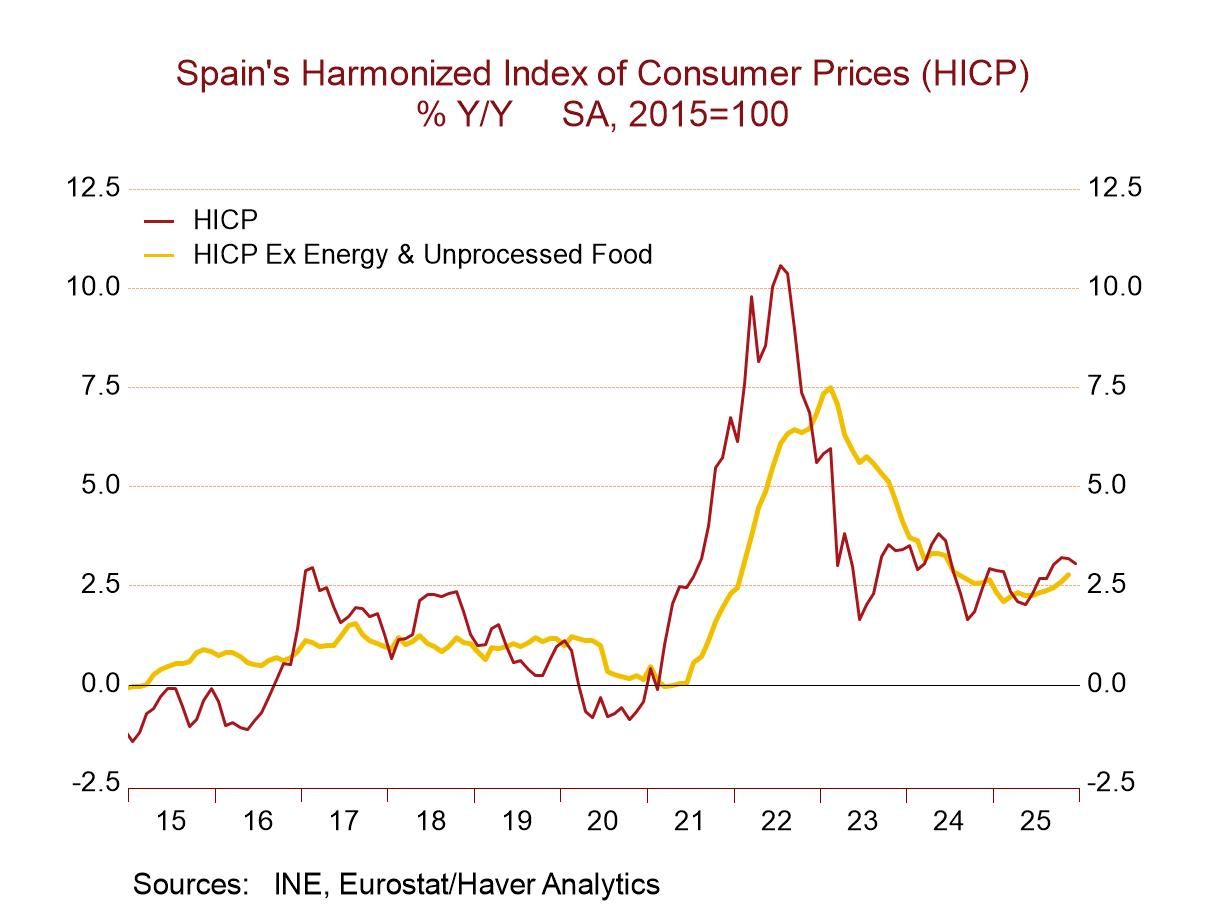U.S. Housing Starts Drop Sharply in March; Building Permits Fall
by:Tom Moeller
|in:Economy in Brief
Summary
- Single-family and multi-family starts reverse February gains.
- Starts decline throughout most of the country.
- Building permits fall to eight-month low.


Total housing starts declined 14.7% (-4.3% y/y) during March to 1.321 million (SAAR) after rising 12.7% in February to 1.549 million, revised from 1.521 million. It was the lowest level of starts since August of last year and it was 26.7% below the most recent peak of 1.803 million in April 2022. The Action Economics Forecast Survey expected 1.485 million starts in March.
The decline in starts was broad-based last month. Starts of single-family units fell 12.4% (+21.2% y/y) to 1.022 million from 1.167 million in February, revised from 1.129 million. They reached a high of 1.311 in December 2020. Multi-family starts declined 21.7% (-44.3% y/y) in March to 299,000 from 382,000 in February, revised from 392,000. They reached a high of 623,000 in November 2022.
Regional activity was mixed in March. In the Northeast, the level of starts fell 36.0% (-56.8% y/y) to 80,000 after declining 8.1% in February. Starts in the Midwest fell 23.0% (+18.0% y/y) to 157,000 following a 50.0% February increase. Starts in the South weakened 17.8% (-11.0% y/y) to 736,000 after rising 17.8% in February. In the West, however, starts increased 7.1% (48.1% y/y) to 348,000 after declining 5.2% in February.
Building permits declined 4.3% (+1.5% y/y) in March to 1.458 million after rising 2.3% to 1.523 million in February, revised from 1.518 million. It was the lowest level of permits since last July. Single-family permits declined 5.7% (+17.4% y/y) to 973,000 in March following a 1.1% February increase. Multi-family permits weakened 1.2% (-20.2% y/y) to 485,000, after rising 4.9% in February.
The housing starts and permits figures can be found in Haver's USECON database. The expectations figure is contained in the AS1REPNA database.


Tom Moeller
AuthorMore in Author Profile »Prior to joining Haver Analytics in 2000, Mr. Moeller worked as the Economist at Chancellor Capital Management from 1985 to 1999. There, he developed comprehensive economic forecasts and interpreted economic data for equity and fixed income portfolio managers. Also at Chancellor, Mr. Moeller worked as an equity analyst and was responsible for researching and rating companies in the economically sensitive automobile and housing industries for investment in Chancellor’s equity portfolio. Prior to joining Chancellor, Mr. Moeller was an Economist at Citibank from 1979 to 1984. He also analyzed pricing behavior in the metals industry for the Council on Wage and Price Stability in Washington, D.C. In 1999, Mr. Moeller received the award for most accurate forecast from the Forecasters' Club of New York. From 1990 to 1992 he was President of the New York Association for Business Economists. Mr. Moeller earned an M.B.A. in Finance from Fordham University, where he graduated in 1987. He holds a Bachelor of Arts in Economics from George Washington University.






